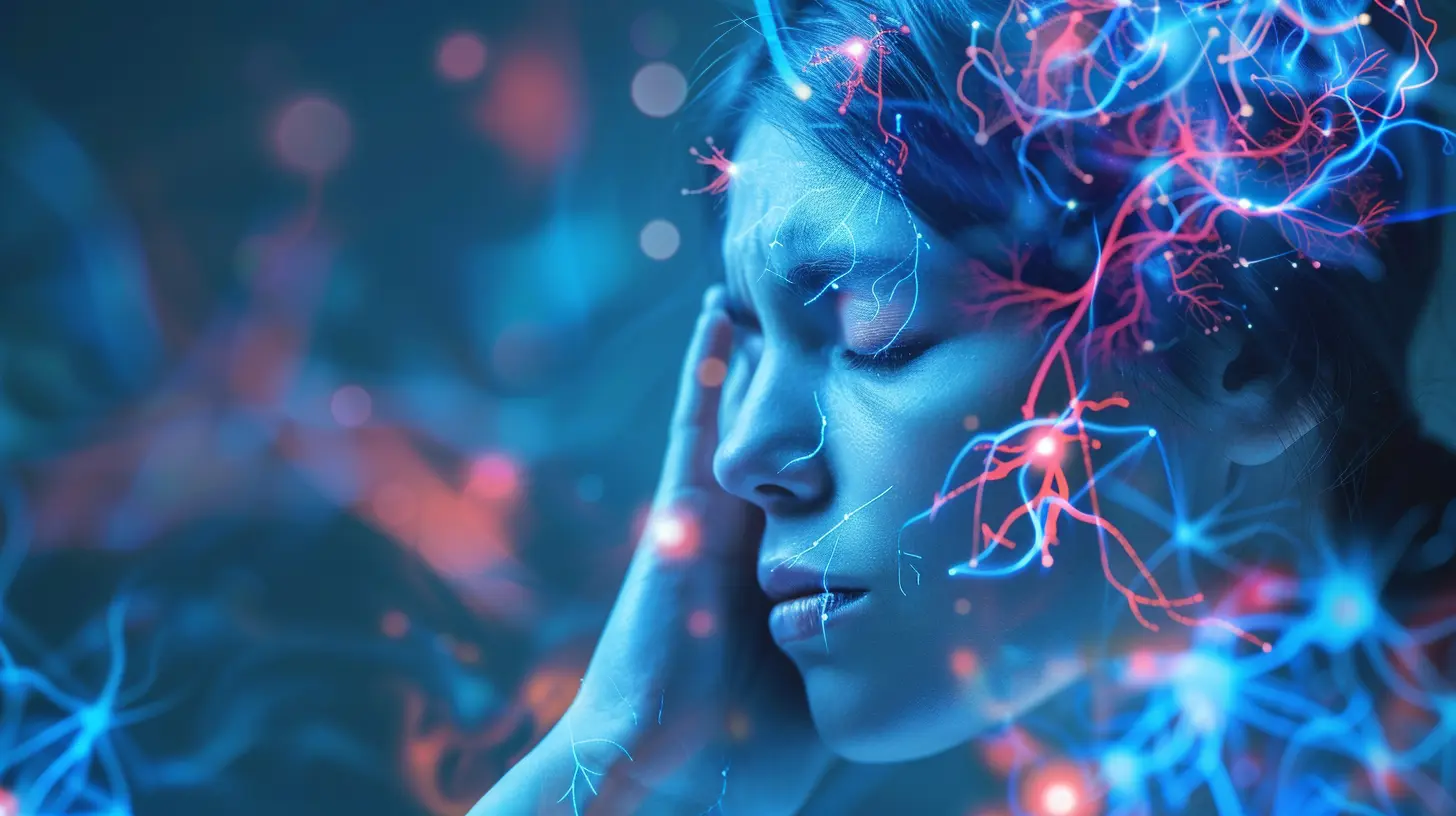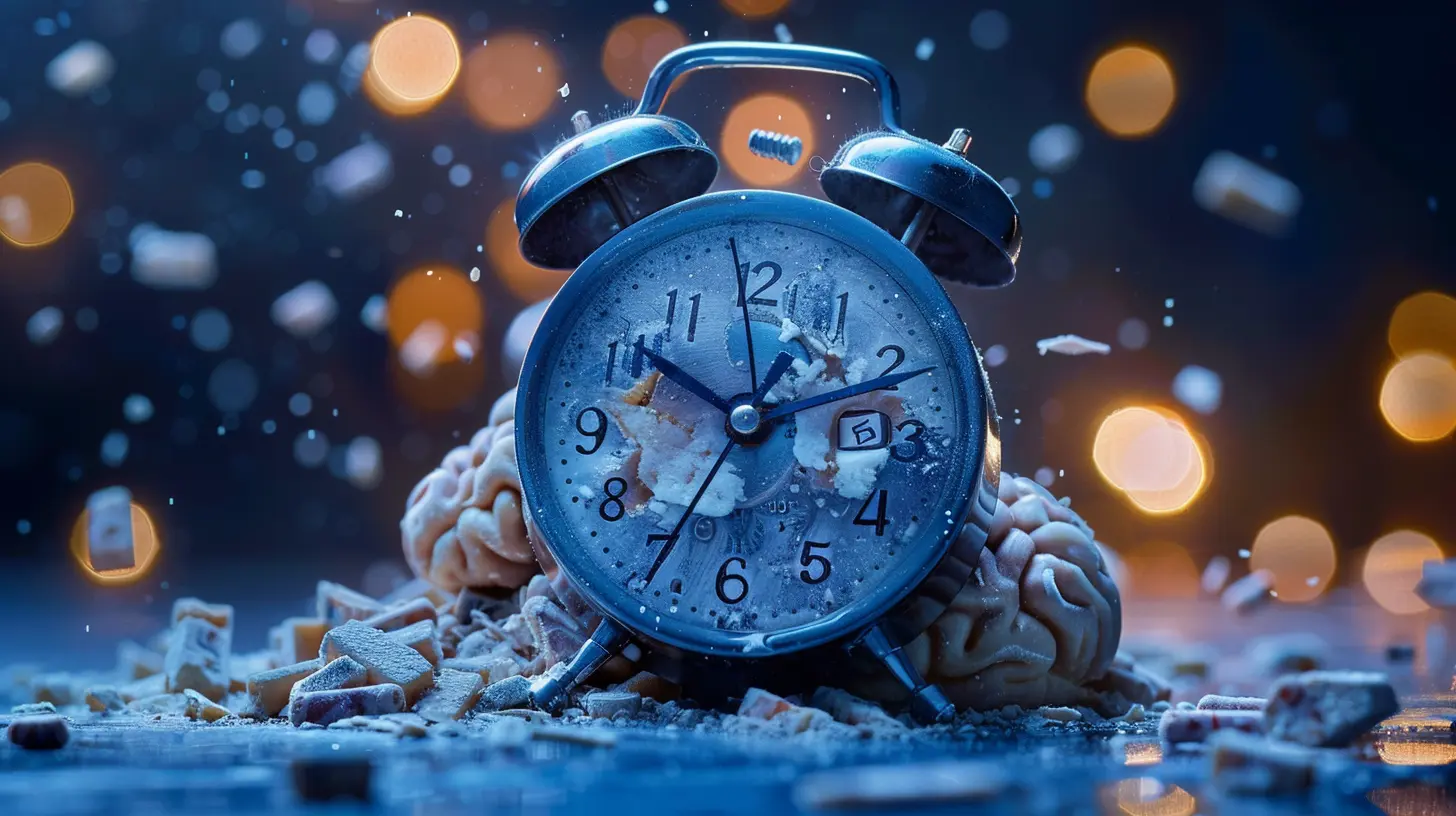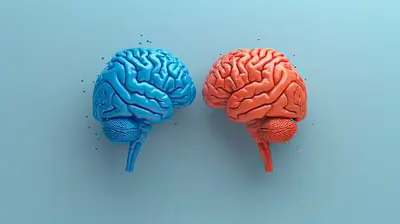How Sleep Deprivation Affects Your Brain Function
24 October 2025
Let’s be real—how often do we brag about "pulling an all-nighter" or surviving on just a few hours of sleep? In today’s hustle culture, sleep is often seen as optional. Like it’s a luxury reserved for weekends or vacations. But here’s the kicker: sleep is non-negotiable for your brain. Not getting enough? Your brain pays the price—big time.
In this article, we’re diving into the nitty-gritty of how sleep deprivation messes with your brain. And no, we're not talking about just feeling groggy. We’re talking memory, mood, decision-making, focus—literally, your whole cognitive toolkit.
So grab a cozy blanket (or a cup of coffee if you must), and let’s unpack what really goes on in your head when you skip out on sleep.
Why Sleep Is A Big Deal For Your Brain
Before we get into how sleep deprivation messes things up, let’s talk about why sleep is so darn important in the first place.Your brain doesn’t just "shut off" when you sleep. In fact, it’s hard at work clearing out waste, consolidating memories, and resetting your emotional balance. Think of it like your brain's nightly housekeeping shift. No sleep? No cleanup. And that’s when things start spiraling.
The Science Bit: What Happens When You Don’t Sleep?
Every part of your brain is affected by sleep—or the lack of it. Here’s a crash course on what happens upstairs when you skimp on shuteye.1. Your Memory Takes A Hit
Ever walk into a room and forget why you went in? Now imagine that happening all day. Sleep is critical for solidifying short-term memories into long-term ones. When you're sleep-deprived, your ability to store and retrieve information tanks—hard.Why? Because memory consolidation mainly happens during deep stages of sleep (especially during REM). No sleep, no proper memory storage.
2. Focus and Attention Go Out the Window
Trying to concentrate on something while exhausted is like trying to watch Netflix with a broken Wi-Fi connection—buffering, lagging, and frustrating.Lack of sleep weakens your prefrontal cortex—the command center for executive function, decision-making, and attention. That’s why you can’t focus, you're easily distracted, and everything feels 10x harder.
3. Mood Swings? You Bet
If you’ve ever snapped at someone for breathing too loudly after a sleepless night, you already know sleep affects your mood. Missing out on sleep makes you more emotionally reactive and less able to regulate your feelings.That’s because your amygdala—the part of your brain responsible for emotions—gets hyperactive when you’re sleep-deprived. At the same time, your brain’s emotional regulator (the prefrontal cortex) is underperforming. It’s like a toddler throwing a tantrum while the babysitter is too tired to intervene.
4. Decision-Making Gets Sloppy
Sleep-deprived brains struggle to weigh risks and rewards accurately. That’s why you might find yourself making impulsive choices (yes, even ordering that third donut counts).Research shows that when you're tired, your brain's reward centers light up more than usual—kind of like they're overcompensating. So you’re more likely to chase short-term pleasure and ignore long-term consequences.
5. Creativity and Problem-Solving? Forget It
Creative tasks rely on your brain’s ability to make new connections, think outside the box, and find unique solutions. But guess what? Sleep deprivation slams the brakes on that entire process.Ever notice how ideas just seem to "click" in the morning after a good night's rest? That’s no coincidence. Sleep helps your brain restructure information, build new neural connections, and unlock that "Aha!" moment.
Brain Fog: The Silent Alarm Bell
You know that fuzzy, spaced-out feeling after a bad night’s sleep? That’s brain fog. It’s your mind’s way of telling you something's off. Your thoughts feel sluggish, your words aren’t coming out right, and even simple tasks feel confusing.It’s like trying to drive through dense fog—you can't see clearly, so you're constantly second-guessing every move. That’s your brain deprived of the clarity and sharpness that sleep provides.
Long-Term Effects: When Sleeplessness Becomes a Habit
A single night of poor sleep is annoying. But chronic sleep deprivation—that’s a whole different beast. It doesn’t just make you cranky; it could actually rewire your brain in some not-so-great ways.Increased Risk of Neurodegenerative Diseases
Studies have shown that poor sleep over time is linked to a higher risk of Alzheimer’s and other forms of dementia. How? One theory is that sleep clears out plaques and toxins in the brain. Without enough rest, those harmful proteins build up, setting the stage for long-term damage.Shrinking Gray Matter
Yes, seriously. Chronic sleep deprivation can cause the gray matter in your brain (the area involved in muscle control, memory, and decision-making) to shrink. It’s like your brain is downsizing for survival.Burnout and Mental Fatigue
Over time, a sleep-deprived brain becomes less resilient. You get overwhelmed more easily, burnout creeps in faster, and your emotional stamina hits rock bottom. You’re not just tired—you’re mentally drained.The Vicious Cycle: Sleep Deprivation and Mental Health
Here's something wild: sleep deprivation and mental health issues feed off each other in a cruel cycle. Anxiety keeps you awake, and lack of sleep worsens your anxiety. Same goes for depression. It's a loop that's hard to break without addressing both sleep patterns and mental wellness.Think of it like this: your brain is trying to run marathon after marathon without ever taking a break to stretch or breathe. Eventually, it collapses under the weight.
The Sleep Stages—Why They Matter
Not all sleep is created equal. There are different stages, and each one plays a specific role in brain function.- Stage 1: Light sleep—where you drift off
- Stage 2: Deepens sleep; your body starts to relax
- Stage 3 (Slow-wave sleep): Critical for physical recovery and immune system support
- REM Sleep: Vital for memory, learning, and emotional balance
Missing out on any of these will throw off your brain chemistry like a lopsided recipe.
How Much Sleep Do We Actually Need?
Most adults need about 7–9 hours of sleep per night. Not just time in bed, but quality sleep. Teens and kids need even more since their brains are still in development mode.But listen—it's not just about hitting that magic number. It's about forming habits that allow your brain to cycle through the necessary sleep stages smoothly.
Quick Tips to Improve Your Sleep (and Save Your Brain)
Feeling called out? Don’t worry—we’ve got some simple, real-life strategies that can help you get back on track.1. Stick to a Consistent Sleep Schedule
Your brain loves routine. Going to bed and waking up at the same time every day (yes, weekends too) helps regulate your internal clock, making it easier to fall asleep and stay asleep.2. Create a Sleep-Friendly Environment
Cool, dark, and quiet—that’s the holy trinity of a sleep-conducive room. Blackout curtains, white noise machines, and comfy bedding can work wonders. Think of your bedroom as a cave your brain retreats to recharge.3. Ditch the Screens Before Bed
Blue light from phones and laptops messes with melatonin production—your brain’s natural sleep hormone. Try to unplug an hour before bed. Instead, read a book, meditate, or listen to calming music.4. Watch What You Eat and Drink
Avoid caffeine in the late afternoon and skip alcohol close to bedtime. Both can interfere with your brain’s ability to enter deep sleep.5. Get Moving During the Day
Regular physical activity helps regulate your sleep cycle. Just don’t work out too close to bedtime unless you enjoy tossing and turning.Final Thoughts: Give Your Brain The Rest It Deserves
Sleep isn’t a weakness. It’s not laziness. It’s a basic biological need—like food, water, or oxygen. Your brain isn’t trying to annoy you when it’s tired; it’s screaming for maintenance!So the next time you think about skipping sleep to be “productive,” remember this: you're not just cutting back on rest. You’re robbing your brain of its ability to think clearly, feel balanced, and function at its best.
Prioritize your sleep, not just for your body—but for your mind. Because when your brain gets the rest it needs, everything else just works better.
all images in this post were generated using AI tools
Category:
Sleep DisordersAuthor:

Angelo McGillivray
Discussion
rate this article
1 comments
Cruz Adams
Sleep deprivation isn’t just a bad mood; it’s a cognitive horror show. A well-rested brain is a sharp tool—think of sleep as your mind’s nightly maintenance check, ensuring smooth operation for the day ahead.
October 28, 2025 at 3:25 PM

Angelo McGillivray
Absolutely! Sleep is essential for cognitive function and overall mental health. Prioritizing restful sleep is key to maintaining sharpness and clarity throughout the day.


